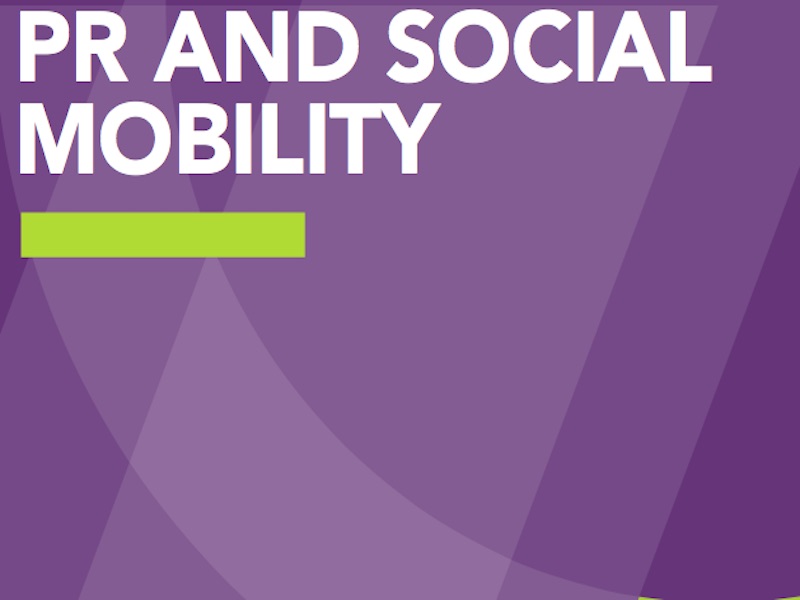Maja Pawinska Sims 15 Jul 2020 // 12:50PM GMT

LONDON — Public relations practitioners in the UK hold views on social mobility that are inconsistent and at odds with public opinion, according to the Chartered Institute of Public Relations (CIPR)'s annual State of the Profession report.
The report – produced in partnership with Chalkstream just before the Covid-19 lockdown – asked a set of questions about social mobility and background for the first time. It found that 37% of PR practitioners think family background has a positive impact on your career, a belief shared by only 20% of the wider public.
Another 40% in PR believe background has no impact on where individuals end up, compared to 60% of the public who hold this view.
However, the report also finds PR practitioners are actually more likely than the public to believe everyone has a fair chance to go as far as their talent and hard work will take them (41% vs. 35%) and much less likely to think that where you end up is mainly determined by background (29% of PR practitioners, 44% of the public).
Within the sector there is a split between those on higher salaries – who are more likely to believe that everyone has a fair chance to go as far as their talent and hard work will take them – compared to those who earn less, who are less likely to think this.
The report also shows the profession has made progress on the gender pay gap, which has reduced by 46% since 2018. Among practitioners with up to four years' experience, women now earn more on average more than men, but women in the most senior roles since earn around £19,000 less than males in equivalent roles.
However, the findings confirms that the industry is still failing to show progress on addressing the lack of ethnic diversity: 91% of the UK industry still classifies itself as white, compared with 92% last year.
Media relations falls out of the top three most commonly identified activities of PR for the first time: the top three are now copywriting and editing; PR programmes and campaigns; and, for the first time, strategic planning.
The top two challenges facing the profession are now identified as the underrepresentation of PR at board level and not being seen as a professional discipline. The changing social and digital landscape, which has been cited as the top challenge for the past two years, is now in third place, followed by unethical PR practices.
The CIPR’s 2020 president, Jenni Field, said: “This year’s reveals little or slow progress in many of the challenges that have long been identified – most notably in the lack of diversity within the profession – but some positive developments in other areas. We appear to be realising our ambitions of becoming more strategic, with more practitioners identifying the need to demonstrate their commitment to professionalism.”
She added: “This year’s survey shows many in the profession recognise the advantages their privileged backgrounds have provided.”
Field said that, on a positive note, the profession “feels like a community” to most people within it (66%): “That’s not by accident and, in the challenging times we have been experiencing, that becomes a lot more than a just a feeling. The impact of the pandemic will be felt throughout the profession, but this provides hope and assurances of a resilience which will help us to come back stronger.”


































.jpg)

















